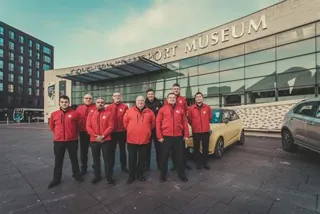Shoddy repairs, missed damage and flaking paintwork are among a litany of poor service listed by fleet managers. And standards are getting worse, members of the North East and Tyne Tees region of fleet operators’ association ACFO have claimed.
Bodywork repairs are being carried out where replacement parts are clearly needed and damage is being completely ignored in some cases.
One fleet manager said: ‘The length of time it takes to do the repair is also not acceptable. I have one vehicle that was off the road for repairs for a long time because the bodyshop couldn’t fit the work in, but was chosen because it charged the insurer £5 an hour less for labour.’
Another described the smart repair standards on a supermini as ‘atrocious’ and blamed bodyshops for trying to keep costs down by not doing a job properly.
A colleague said: ‘I had a driver in a courtesy car for six weeks and they were very unhappy because they had to move down from an upper-medium vehicle to a supermini.’
One fleet manager claimed that leasing companies had to take a share of the blame because they were simply signing off repair work for their vehicles without thorough checks by experts, which in turn encouraged poor work.
Another added: ‘We had a vehicle that came back from a repair with a new bumper. When we checked in the boot, the floor had crumpled but, because it was out of view, the repairer had just left it.’
Recently, fleets called for a national standard for vehicle repairers, set by agencies such as Thatcham and the British Standards Institution (BSI), to protect fleets from shoddy workmanship.
#AM_ART_SPLIT# But bodyshops claim the tight margins they are forced to work to by insurance companies means they cannot invest as they would like to in equipment and training and that the levels of profit they achieve as a result are unsustainable.
Experts have also warned that a capacity crisis could hit bodyshops because there are not enough expert staff around.
















Login to comment
Comments
No comments have been made yet.